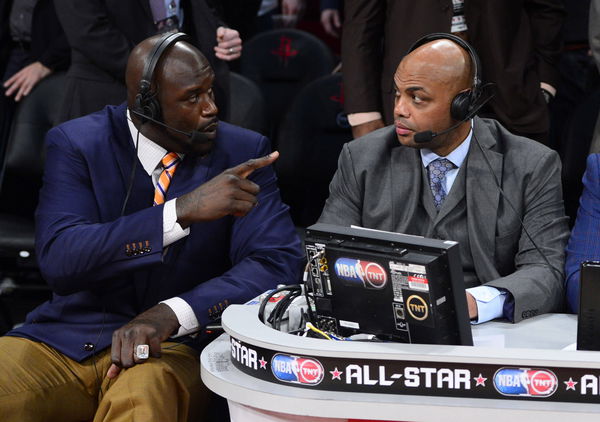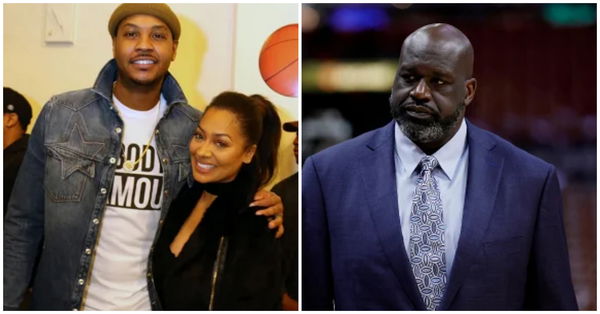Phoenix Suns Face Leadership Void and Roster Limitations After Playoff Sweep

Follow Us

USA Today via Reuters
Apr 26, 2024; Phoenix, Arizona, USA; Phoenix Suns guard Bradley Beal (3) and Phoenix Suns forward Kevin Durant (35) and Phoenix Suns guard Devin Booker (1) react while Minnesota Timberwolves celebrate during the second half of game three of the first round for the 2024 NBA playoffs at Footprint Center. Mandatory Credit: Joe Camporeale-USA TODAY Sports
In the regular season, the Phoenix Suns were 3-0 against the Minnesota Timberwolves. But the tides have changed. Come Sunday, the Footprint Center witnessed their home team’s dismal sweep by the North Star State, dashing their aspirations for a deep NBA playoff run.
Throughout the season, tensions within the team were evident. Add to that, significant roster constraints as a result of steep financial commitments and strict new rules from the collective bargaining agreement have led the team to the off-season to take a hard look at their coaching unit and more.
Suns’ 105-92 loss to the Clippers was a sign of dark clouds on the horizon
ADVERTISEMENT
Article continues below this ad
Head coach Frank Vogel signed a five-year, $31 million contract before the season. At the end of Game 4 on Sunday, The Athletic demonstrated an incident indicative of a critical disconnect: after a substantial loss to the LA Clippers in April, head coach Frank Vogel’s vehement critique during a locker room tirade and beyond seemed to distance his players. Some reportedly struggled to take the outburst seriously, perceiving it as uncharacteristic and contrived. This moment underscored a deeper issue of dwindling trust and respect between the players and their coach.
Despite Vogel’s proven record, which includes leading the Los Angeles Lakers to a championship in 2020 and guiding the Indiana Pacers deep into the playoffs multiple times, his strategies this season have frequently been questioned. This is in direct contradiction to when Vogel promised to bring a “championship level culture both on and off the court” in his introductory press conference as the Suns’ head coach.
Trending

Shaquille O’Neal and Charles Barkley’s Absence From “Inside the NBA” Is Due to TNT’s Uncertain Future, as Per Reports
May 15, 2024 07:32 AM EDT

Countdown Starts for Charles Barkley and TNT Crew as Ernie Johnson Makes Heartfelt Confession Before Parting
May 16, 2024 06:00 AM EDT

Carmelo Anthony’s Ex-Wife La La Freaks Out in Shaquille O’Neal’s Presence After 30YO Admirer’s Call
May 16, 2024 02:39 AM EDT

Mother of 5, Dwyane Wade’s Wife Gabrielle Admits Changing Herself Due to 3 Things
May 13, 2024 12:30 PM EDT

Exclusive: Real Motive Behind Shaquille O’Neal’s Attack on Nikola Jokic Revealed by Insider
May 15, 2024 12:54 PM EDT
Get instantly notified of the hottest NBA stories via Google! Click on Follow Us and Tap the Blue Star.

Follow Us
Now, additional reporting indicates that Suns’ executives are considering a change in coaching or at least substantial adjustments to Vogel’s staff, given the team’s uninspiring playoff performance and apparent leadership deficiencies (both on and off-court). However, before the Suns’ Game 4 loss, Vogel expressed his belief of having the full support of Suns’ owner Matt Ishbia, when asked how confident he is that he’ll be coaching the team in 2024-25.
“Very [confident],” Vogel said. “I’ve got full support from Mat Ishbia.”
Ishbia, who acquired the Suns in December 2022, has actively managed and developed the team. ESPN’s Adrian Wojnarowski highlighted the assertive nature of Ishbia’s leadership during a recent live broadcast, noting, “You’ve seen Mat Ishbia, the (team) owner, he has made rapid change in his short tenure as owner.” This statement underscores the high expectations and the dynamic shifts Ishbia is ready to enforce in pursuit of success.
In fact, after Ishbia’s arrival, Monty Williams, the previous Suns coach, was fired just 48 hours after he led the team to the Western Conference Semifinals last season but failed. Nuggets eventually won the NBA championship but 2023 was, nevertheless, a significantly more successful postseason performance than Vogel’s initial outing, which ended in a first-round sweep. The reason cited later was, “We evaluated where we were and where we wanted to go, we just saw a gap and we needed to fill it.” they were eliminated by the Denver Nuggets.
But did the buck really stop at the head coach level?
The Suns’ aggressive pursuit of stars Kevin Durant and Bradley Beal was meant to elevate the team to championship contention but instead resulted in a payroll that soared past $200 million. This fiscal overstretch has imposed severe limitations under the NBA’s luxury tax provisions, constraining the Suns’ ability to engage in meaningful trades or sign key free agents.
Consequently, the team is locked into its current lineup, leaving little room to rectify pressing needs such as a dependable starting point guard or bolster defensive capabilities on the wings and at center. Moreover, the entire season, the power trio of Booker, Durant, and Beal failed to create the image of a leader on the court. Although, they did put up a good fight in the final game with Booker and Durant putting together 82 points on the scoreboard, it was too little too late.
Strategic shortcomings or predictable or both?
The Suns’ playoff performance exposed glaring deficiencies. Despite stellar individual efforts, the team faltered with turnovers, defensive breakdowns, and an overall lack of poise.
These challenges were compounded by a lack of seasoned leadership and coherent strategic direction, particularly noticeable after Chris Paul’s departure last year left a void at point guard. The team frequently switched between Booker and Beal in the point guard role, often displacing them from their natural positions.
Beal faced challenges from the start due to injuries, limiting his participation to only 53 games without establishing consistency at the point guard position, something that is not entirely surprising, knowing that is the highest number of games he played in the last three years. The arrangement was less than ideal, complicating the Suns’ offensive strategy.
Initially, Devin Booker handled most of the ball-handling responsibilities before the All-Star break, with Beal taking over more frequently afterward. However, neither player seemed comfortable in the role, especially when opponents applied intense full-court pressure. This tactic taxed their stamina and contributed to several on-court difficulties.
Turnovers were a significant issue for Phoenix. The team averaged 14.9 turnovers per game during the regular season, an increase of 1.5 from the previous season under Chris Paul, ranking them 25th in the league. Common mistakes included mishandled dribble handoffs, careless passes, and losing the ball during drives.
Chris Finch, the Timberwolves coach, often deployed Jaden McDaniels and others to apply full-court pressure to Booker and Beal during the playoffs, further disrupting the Suns’ offensive flow. This strategy effectively stifled Phoenix’s ability to maintain a consistent offensive rhythm throughout the series.
Phoenix’s offensive approach, which heavily depended on isolation plays, became predictable and was ineffective against robust playoff defenses. Such a strategy led to static ball movement and allowed opponents to disrupt their offensive flow easily. These blunders were particularly evident in fourth-quarter play, where Phoenix ranked at the bottom of the league in offensive efficiency.
ADVERTISEMENT
Article continues below this ad
Durant expressed dissatisfaction with his role in the Suns’ offense after feeling underutilized in a system that cornered him and depended too much on pick-and-roll and isolation, often relegating him to stand in the corner in a stagnant offense. On the contrary, some felt Durant could have addressed this more directly with the coaching staff.
What is the path forward?
As the Suns head into the offseason, they face significant challenges. They hold the 22nd overall pick in this year’s NBA Draft, but beyond that, their future draft capital is largely depleted or restricted, making significant roster improvements difficult.
ADVERTISEMENT
Article continues below this ad
Vogel’s leadership effectiveness, teamwork among the star players, and strategic changes are vital areas to focus on. The front office must find creative ways to manage the team’s finances to keep the Suns competitive.
The Suns are at a critical point. They face significant financial and roster constraints, possible leadership changes, and a need for strategic updates—decisions they will be required to make soon.
Edited by:

Jahnabi Choudhury

